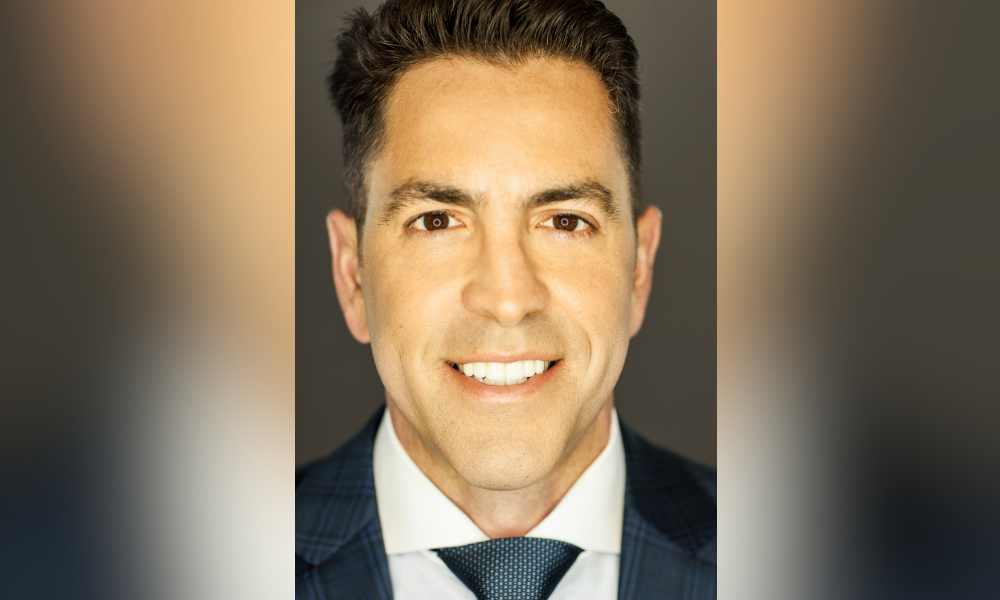

Less than 10% of financial advisors in the U.S. are from Hispanic backgrounds, according to estimates, but what can the industry do to change the stats?
It’s Hispanic Heritage Month and InvestmentNews asked Lorenzo Esparza, co-founder of Manhattan West in Los Angeles, to share his insights into the challenges and cultural barriers to greater diversity in the industry from his perspective as a child of Mexican immigrants.
Along with his co-founding partner Angie Spielman, who also has a Hispanic background, Esparza has grown the wealth management and alternative investment advisory firm to a recent milestone of $1 billion AUM in its first seven years in business.
As a kid, Esparza was fascinated by the capital markets and would watch CNBC to learn as much as he could, although he admits to not understanding much at the time.
“Growing up in a modest income family, the idea of learning about finance and business - topics outside of my reality - was fun and intriguing to me. I imagined a different life for myself, and the financial markets spoke to me in that way,” he said.
His parents were laborers with limited education, so there was no role model to encourage his interest in financial services, so he went to Loyola Law School at Loyola Marymount and graduated. But the call of the capital markets endured.
“I knew right away I didn’t want to practice law. I pivoted quickly into financial services and joined Bernstein here in Los Angeles, then moved to JP Morgan. I grew up in finance through the financial crisis and the failure of Lehman Brothers, Bear Stearns, and Countrywide Mortgage Lenders,” he explained.
But a new step in Esparza’s career was ahead as he co-founded Manhattan West and developed a firm that serves athletes, entertainers, those in Hollywood both in front and behind the camera, as well as high-net-worth families.
“I really loved JP Morgan (and Bernstein). I was proud to be there, and I thought that I would retire as a vice-chairman there,” he noted. “But as I got older and more experienced, I saw so many entrepreneurs that created substantial success by going out on their own.”
Founding his own firm allowed Esparza to create a modern version of an investment firm with a strong culture of diversity and inclusion.
“We wanted to create an exceptional firm with a great culture, and we did that by hiring smart, successful people from diverse backgrounds,” Esparza said. “Our growth accelerated as we added more talented people. That’s really the goal and the focus. Everything starts with human capital.”
And the offering provides unique access to exclusive alternative investments that include the innovative F1 Exhibition - a first-of-its-kind international traveling exhibition covering the exciting past, present, and future of Formula One.
“Starting with liquid portfolios, we’ve evolved our investment offering by creating an alternative investments platform with proprietary offerings for clients seeking more access to investments in private equity, venture capital, real estate, and private debt,” explained Esparza. “We’ve also scaled our service platform by adding insurance, business management and tax services to provide a more comprehensive suite of services for clients.”
And how about that $1 billion AUM?
“It’s a nice benchmark, but it’s really the beginning for us. We have big plans for growth that we’re seeing reflected by the trends in our revenue and AUM growth,” he said.
With the relatively low levels of advisors with Hispanic heritage, what does Esparza think is holding others back?
“I think there is some trepidation from Latinos. I don’t think Latinos are intimidated to become firemen or police officers. They can envision that pretty easily,” he said. “But if they don’t know about opportunities in financial services or other white collar jobs, they are not going to strive for those positions. Getting to kids in high school is one way to open that door.”
And education is also important to breaking down barriers outside of school.
“I think Latino families need to focus their kids on education. That has not always been a hallmark of the culture,” he added. “If Latino families are focusing their kids on education, then the opportunity set opens up. I think the industry would then have more candidates from that pool to draw from. The industry needs to look at measurements of grit beyond just traditional means of understanding the potential of a candidate.”
While Esparza is doing his bit through hiring and by advocating for other people of Hispanic heritage to join the industry, that ambition to achieve in the financial services industry remains as sharp today as it was when he was that kid watching the markets on TV.
“We will continue to hire great people and grow our AUM. We are leaning on technology and building our brand as a modern investment firm,” he said. “Our goal is to be a perpetual organization like JP Morgan, Apollo Group or KKR. Emulating those brands is exciting to me as I intend to leave a legacy in this industry.”

Relationships are key to our business but advisors are often slow to engage in specific activities designed to foster them.

Whichever path you go down, act now while you're still in control.

Pro-bitcoin professionals, however, say the cryptocurrency has ushered in change.

“LPL has evolved significantly over the last decade and still wants to scale up,” says one industry executive.

Survey findings from the Nationwide Retirement Institute offers pearls of planning wisdom from 60- to 65-year-olds, as well as insights into concerns.
Streamline your outreach with Aidentified's AI-driven solutions
This season’s market volatility: Positioning for rate relief, income growth and the AI rebound
